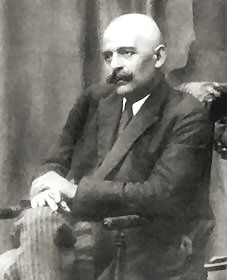Personality
Personality in 3D
Personality as seen through the physical, emotional and intellectual dimensions.
Posted March 8, 2020 Reviewed by Ekua Hagan
Theories of personality are as old as civilization. Even the ancient Scriptures of many world religions offer perspectives, with the Bhagavad Gita and its discussion of the three gunas (sattva, rajas, and tamas) being among the oldest.
In psychology, theories of personality come from two distinct traditions: the philosophical musings of prominent clinicians, like Sigmund Freud (and his theory of the id, ego, and superego), and those derived from empirical research, like Raymond Cattell's factor analyses, which paved the way for his scale of 16 personality factors — i.e., the 16 PF (Russell & Karol., 1994).
As a clinician, I am always looking for ways to better understand my patients, and sometimes I find that old theories can offer new perspectives. One such "old theory" comes from the 19th-century spiritual philosopher George Gurdjieff. Gurdjieff believed that personality types can be divided into physical, emotional, and intellectual categories and that each person would be well-served by following the spiritual path that resonates with her respective personality orientation (Ouspensky, 1957).

Though Gurdjieff's perspective, which I've abridged here, may seem simplistic, in my clinical work I've found evidence to support his theory. In my practice, the most successful interventions I've prescribed have been those that aligned with the most prominent dimension of a patient's personality, be it physical, emotional, or intellectual.
To be more specific, when I'm trying to assess someone's personality orientation in this way, I am most interested in learning the following:
- Which activities or personal traits they take the most pride in
- Which activities they seek out for pleasure; and
- Which activities they reliably pursue to comfort themselves during times of stress
Although it is not always the case that one of the aforementioned dimensions — physical, emotional, or intellectual — rises clearly above the other two, when it does, and I am able to identify it, this has helped me to unlock a patient's unconscious behavior patterns and select the best possible intervention.
Personality Orientations
Physical Orientation
For those with a physical orientation, their personality, ego, and identity revolve around their body. For some, this means an intense focus on the body itself while for others it corresponds to the physical activities that give their lives meaning.
On a constructive level, these activities may include exercise, yoga, sex, indulgence in fine food, and all types of sports. Regardless of whether the focus is on one's body (as with runway models and bodybuilders) or performance in a particular activity (as with professional athletes) those with a physical orientation are more likely to have intense reactions to the loss of physical prowess, as a result of aging, illness, or injury than those with one of the other orientations.

Emotional Orientation
Those who are emotionally oriented tend to prioritize relationships — including family bonds, friendships, and romantic attachments — as human connections are what give their lives the most meaning. For emotionally oriented people, relationships are often the source of their greatest joys, but also their greatest sorrows and anxieties. When the relationships most central to their lives are going well, they are likely to feel balanced and content; but when problems arise in these relationships, the resulting emotional distress can be so intense it can get in the way of fulfilling responsibilities.

Intellectual Orientation
Those for whom the intellectual dimension is most prominent value mental pursuits over interpersonal relationships and pleasures of the body. Intellectually oriented people would rather be engaged in a computer activity — playing online chess or perusing articles on Reddit — than riding a mountain bike or enjoying a romantic dinner.
On a constructive level, intellectually oriented people are less likely to be deterred from working long hours in isolation to achieve a goal or let emotional factors derail them from completing a task (as per the stereotype of the surgeon with ice water in her veins, staying calm during an operation). Conversely, they are more likely than those of the other orientations to view socialization as simply a means to an end (e.g., the advancement of their careers), not as something to be enjoyed for its own sake.

Letting Personality Guide Therapy
From a clinical perspective, recognizing the most prominent dimension of a patient's personality can be key when recommending treatment options. For instance, I've found that intellectually oriented people are less likely to respond to interventions for depression or anxiety that involve group therapy or physical exercise; however, they tend to respond well to mentally stimulating projects (e.g., exercises in a symptom workbook) and even meditation, which involves the release of mental stimuli (including unhealthy thoughts) from awareness. Conversely, I've found that emotionally oriented people are likely to fare better with a support group than a treatment workbook in their attempt to remediate symptoms of anxiety and depression.
Regardless of whether an individual's most prominent personality dimension is physical, emotional, or intellectual, it's important to recognize that all of one's constructive, pleasure-seeking activities can be done in unhealthy ways during times of stress, which can then lead to secondary problems like eating disorders, relationship infidelity, or computer game addictions.
While emotionally oriented people may place the highest value on relationships, people of all orientations are involved in many different relationships. In my experience, particularly working in family therapy, emotionally oriented people tend to be more innately aware of what their relationship partners may need when struggling with emotional pain. Conversely, when physically and intellectually oriented people need to comfort their loved ones in pain it can sometimes be an awkward struggle for them, akin to riding a bicycle through a river.
And in many cases, with the best of intentions, their efforts can even increase their loved ones' distress when they try too hard, especially when applying rational solutions to their loved ones' emotional problems without first validating their pain. To remediate these situations, I recently created a short video, with tips for people of all orientations, to help their friends and family members during times of emotional distress.
In closing, whether you are a licensed psychologist or a lay therapist, if you find yourself struggling to understand and help those who seek your counsel, it may be worth considering whether the people you are trying to help are more physically, emotionally, or intellectually oriented and whether the feedback you give them aligns with their personality orientation.
Click here for a discussion of this post on the hit show, I Do Podcast.
To find a therapist, please visit the Psychology Today Therapy Directory.
References
Russell, M. & Karol, D. (1994). 16 PF Administrator's Manual: Fifith Edition, Institute for Personality and Ability Testing, Inc.: Champaign, IL.




